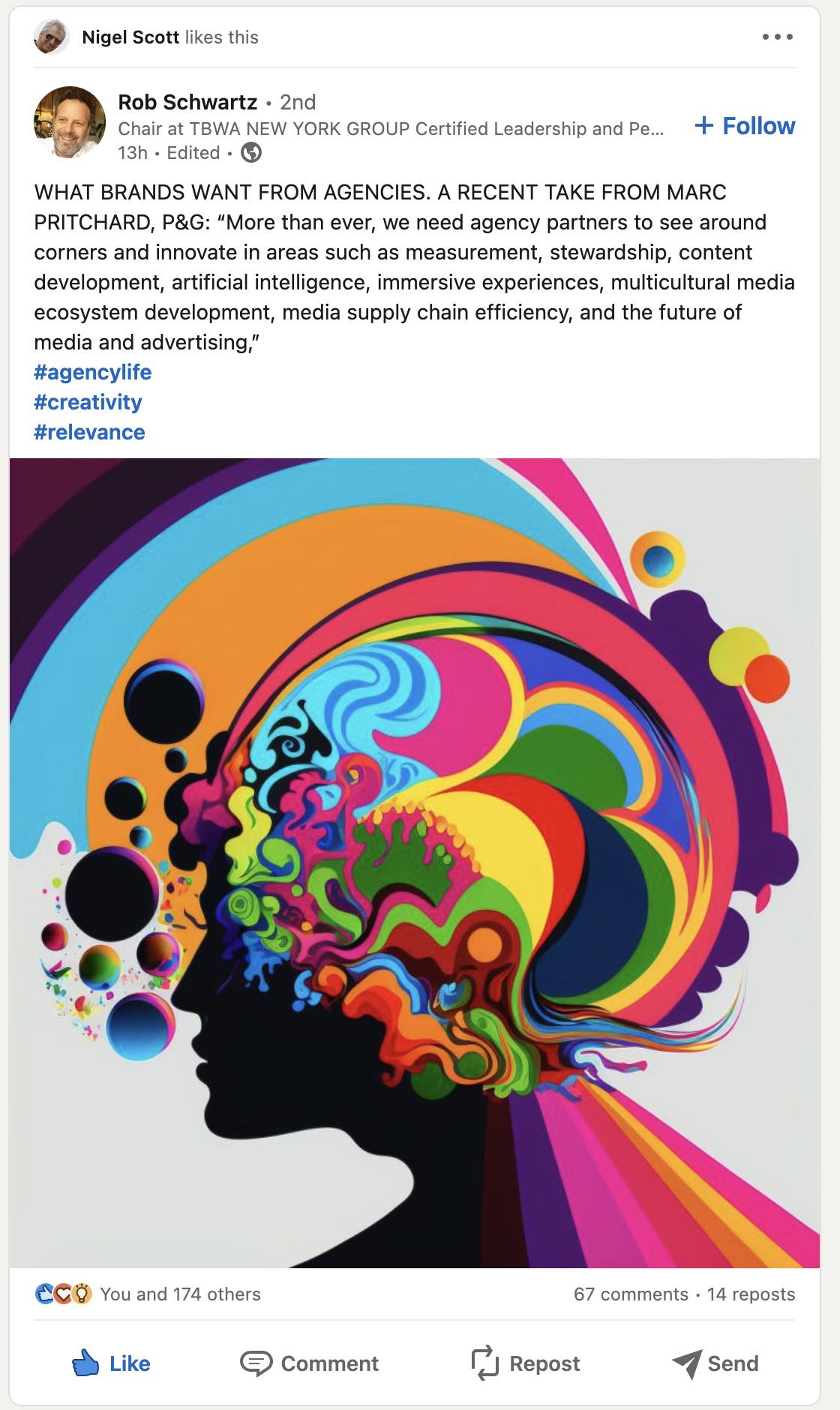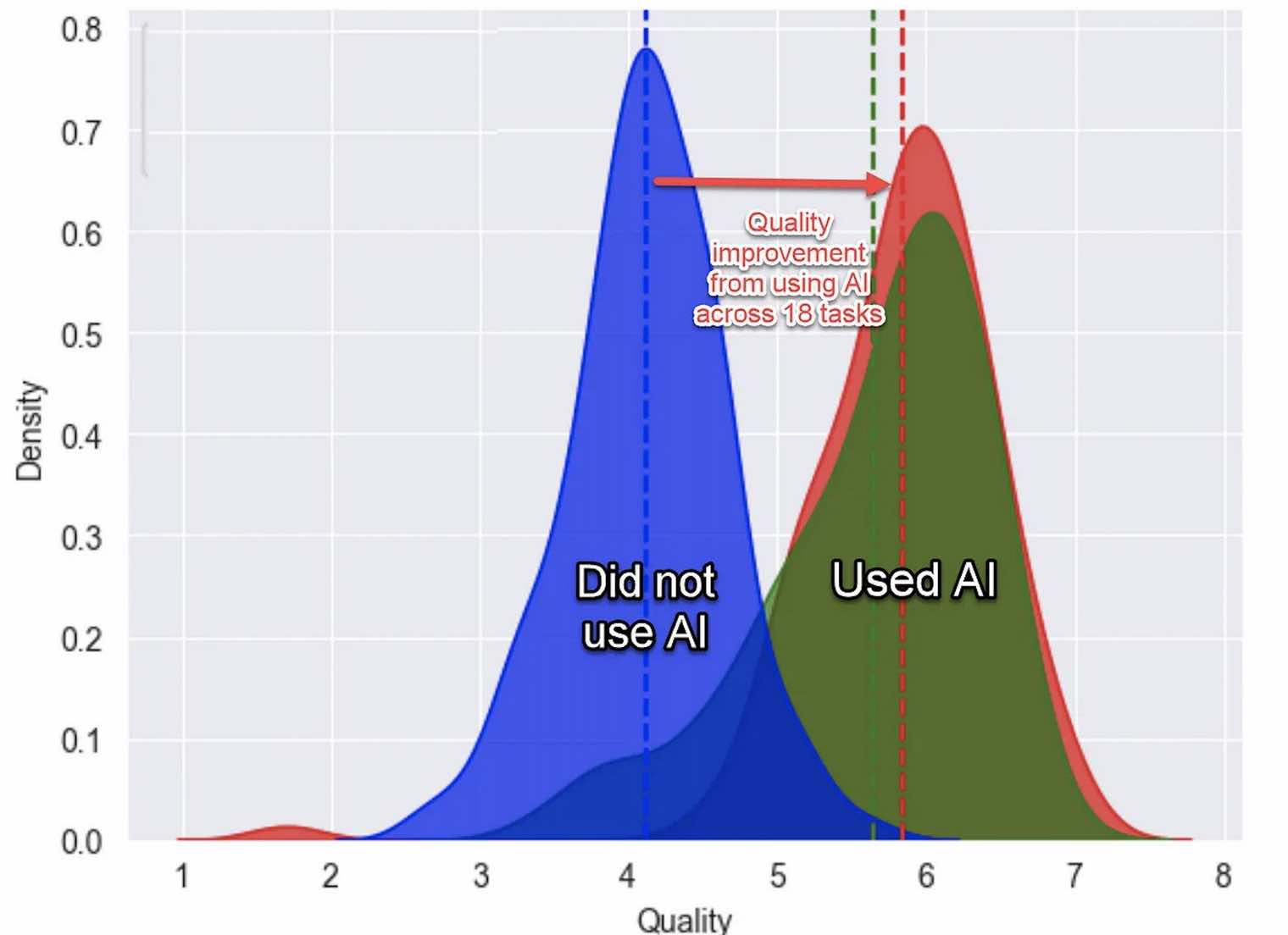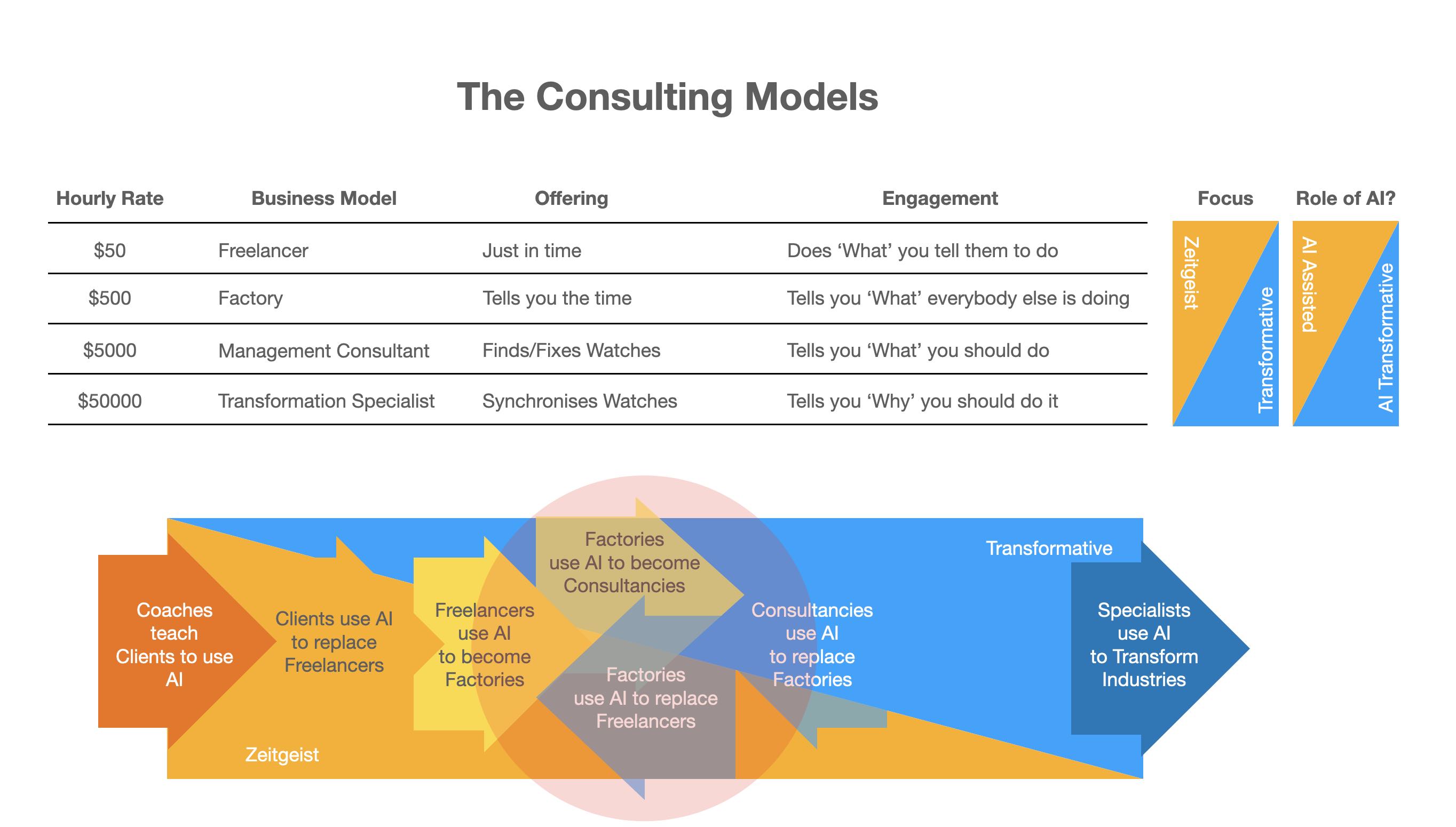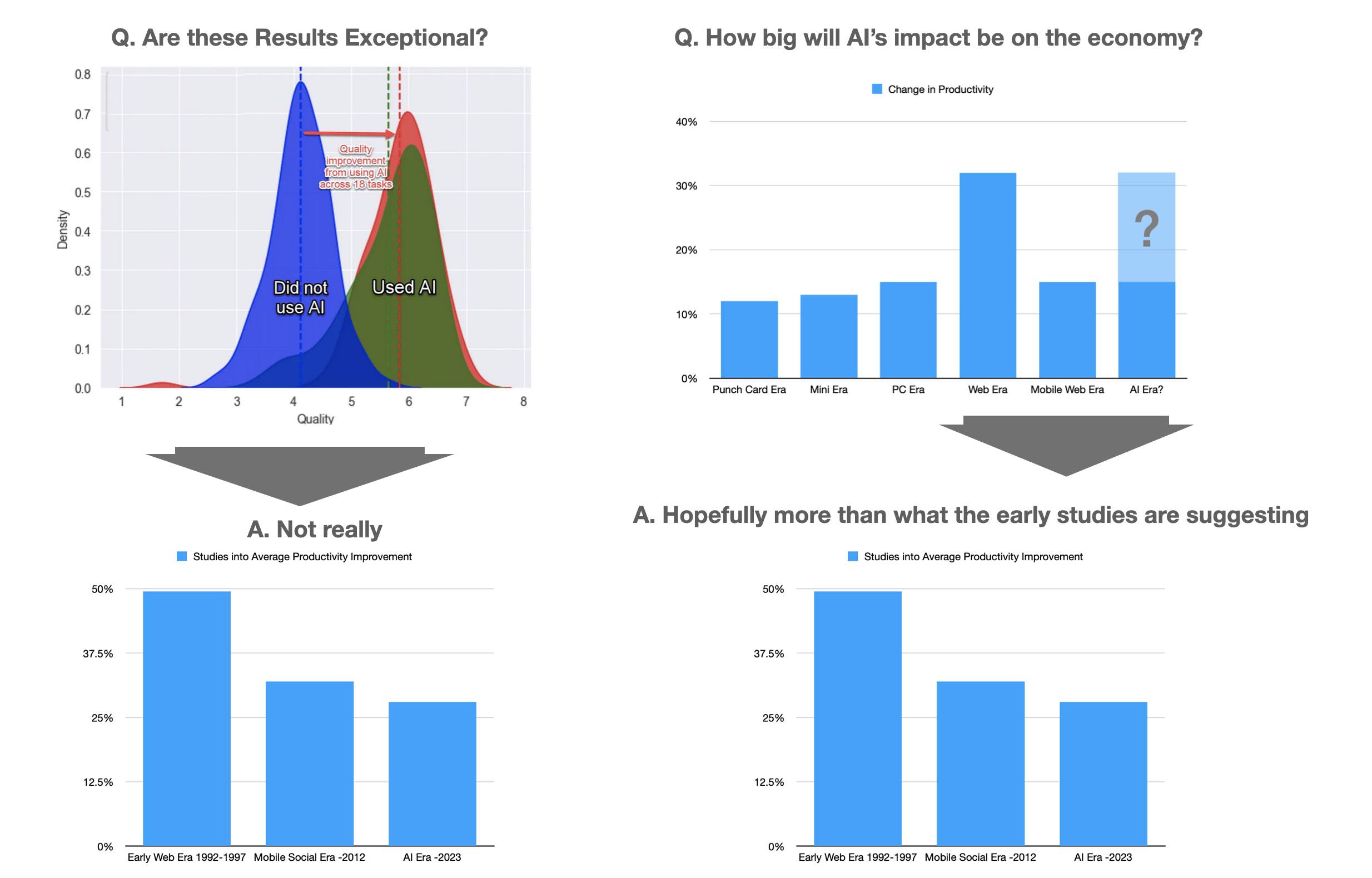Let's take a quick look at what separates advertising industry from management consulting
(To bastardise Oscar Wilde) Basically every business is three
The business it thinks it is. The business other people think it is. And ultimately the business it really is.
Advertising is the business of designing market perceptions
Advertising deals with shaping what other people think the business is
It isn't the voice of the customer. It is the mind of the customer
And just like Real Estate advertising is in the business of brokering a better position
Position, Position, Position. This is advertising 101
Management Consulting on the other hand deals with what the business really is
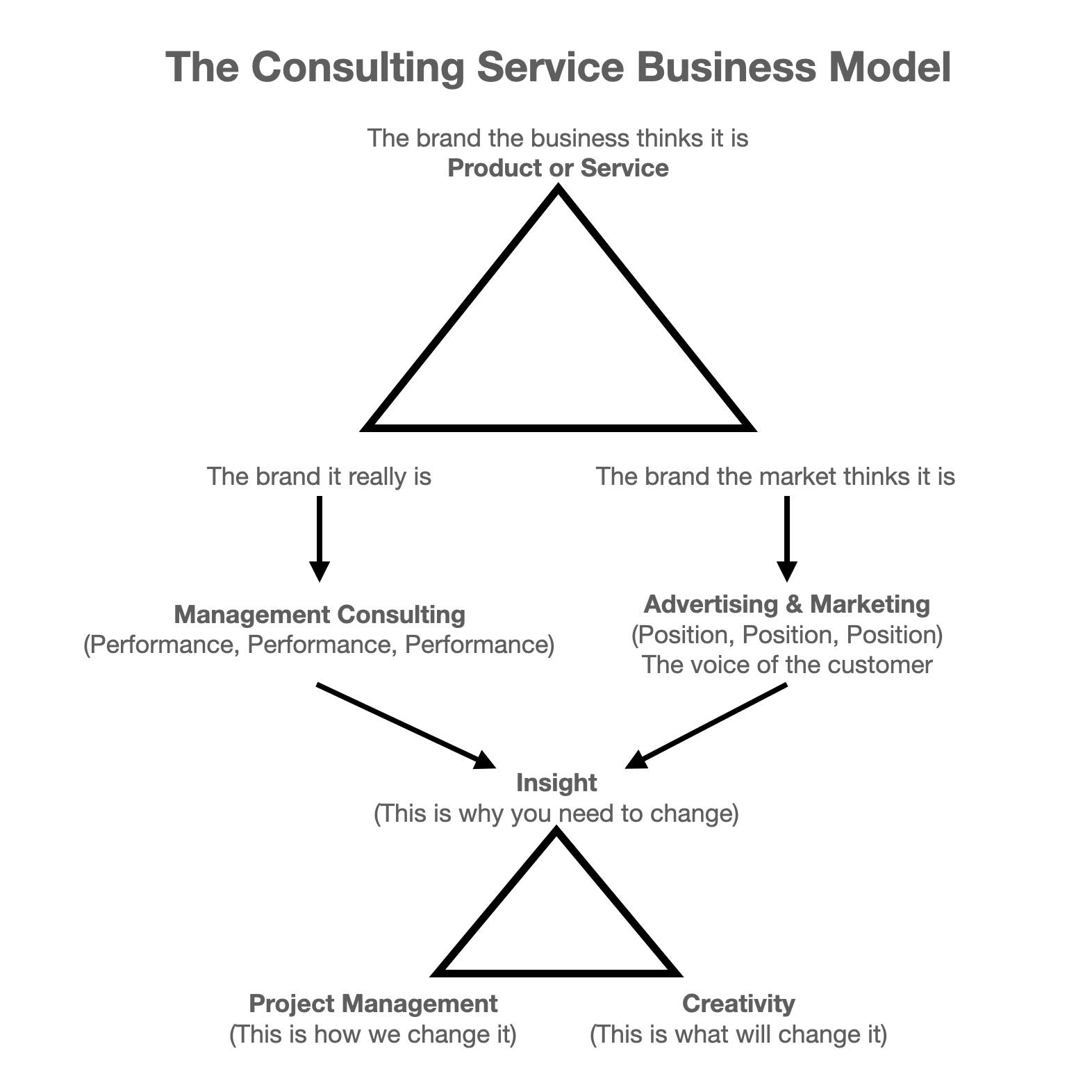
Advertising agencies compete on three key qualities
They must be better at insights (positioning), project management and creative messaging than their clients and their competition
Advertising and Management Consultants battle for share of wallet because their competitive edges mirror one another
But ultimately the battle is one of performance vs position
With the right position the business doesn't need to outperform the competition
With the wrong position businesses have to outperform the competition
Put simply any business spending excessively on management consultants is doing so because it has failed at marketing
It is investing in improving its own performance over improving its market position
Maintaining a poorly positioned business is a money pit
The overwhelming majority of businesses are poorly positioned
This is why management consulting is a growth industry and advertising is in decline
The trick that adtech and digital pulled was to conflate performance with position
Convincing the marketing world that performance - rather than being a measure of a brands relative position - improves position
e.g. High CTR = Stronger Position - where in reality a strong position (in the customer's mind) not only delivers a higher CTR it also deliver search and social traffic because share of mind translates into share of search and voice
Today marketing managers choose to lease their position (on the list - be it Google or Social i.e. Virtual memory) rather than own their position (in the customers mind)
in 2000 I identified the value proposition for advertising moving forward was customer intimacy
ie. We decided we were in business of identifying and designing tactical opportunities that will enhance our client's Customer Value Proposition and/or Customer Life-Cycle Profitability
That business was about developing relationship strategies. Both digital and IRL
The future of business was interactive
It was an attempt to merge advertising and management consulting into a single offering
It moved the business away from the 30 sec spot or web site design towards customer journeys and business process re-engineering
In a word the future was digital transformation
The pitch was Mission Critical:Tactical Initiatives delivered in 90 days
It was called Decision Point 90
The proposition looked something like this...
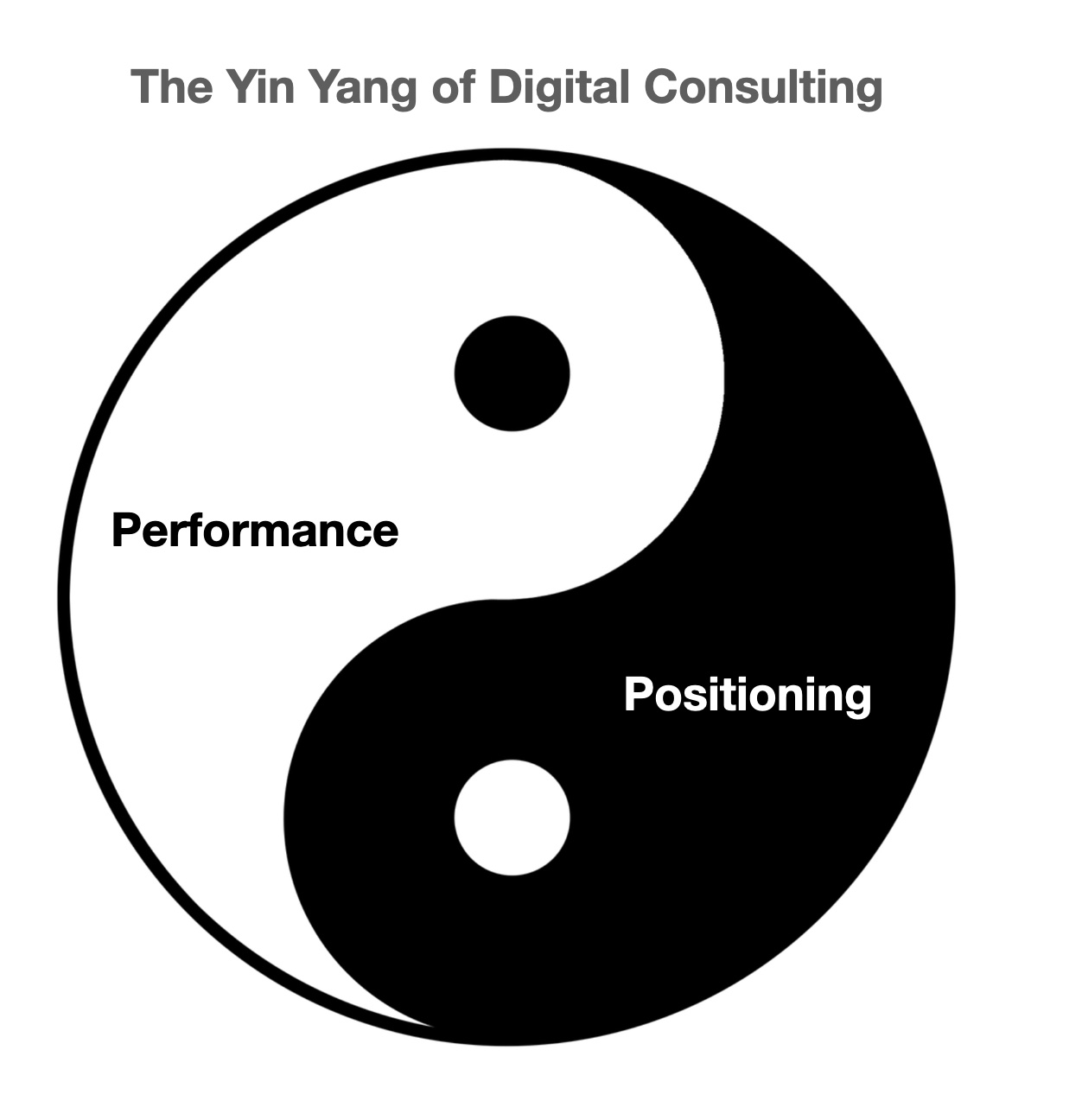
The balance between the Yin Yang was a reflection of the relative business maturity of the client
Management consulting profits from novice level best practices
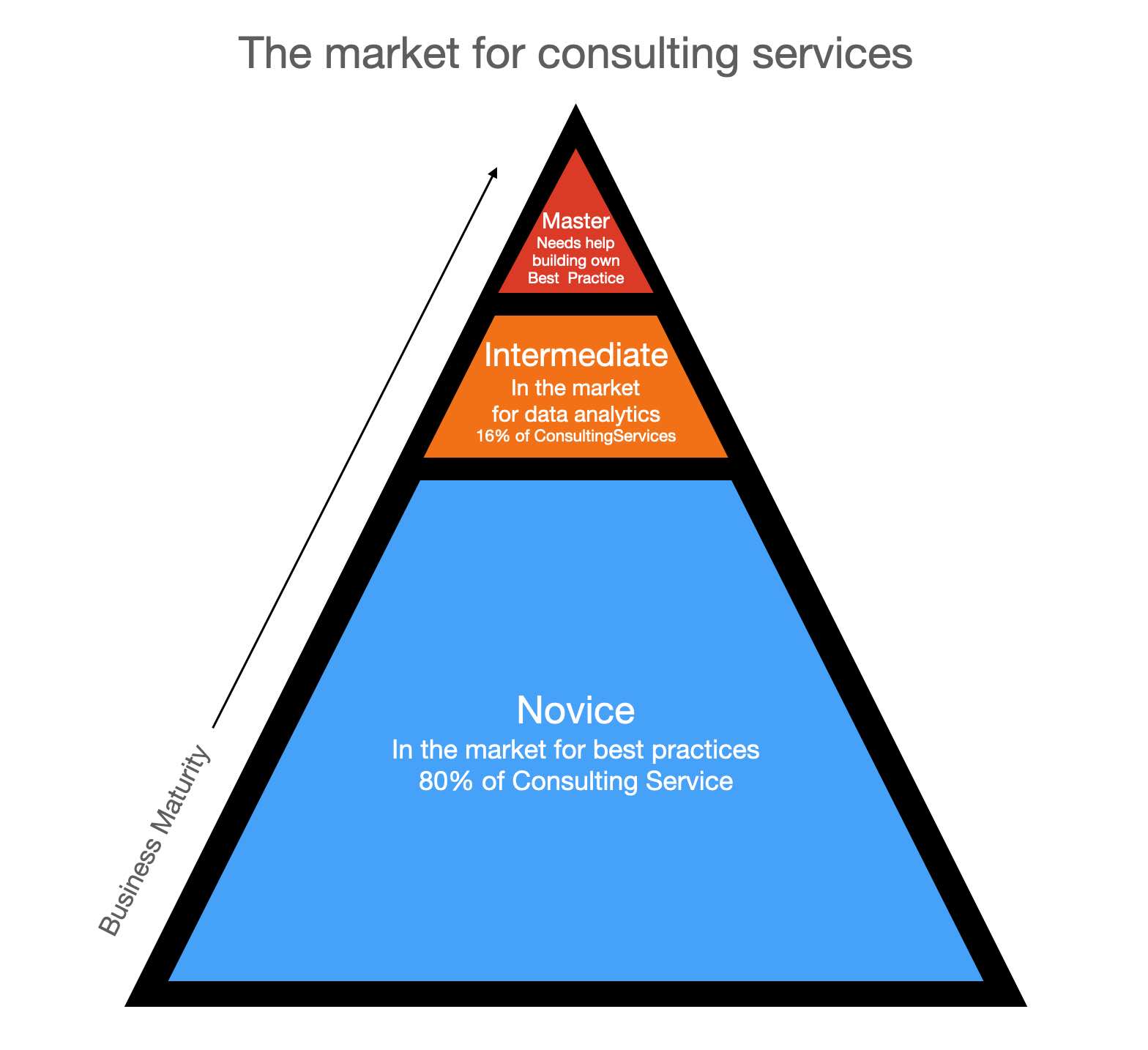
Advertising profits from clients competing in crowded markets
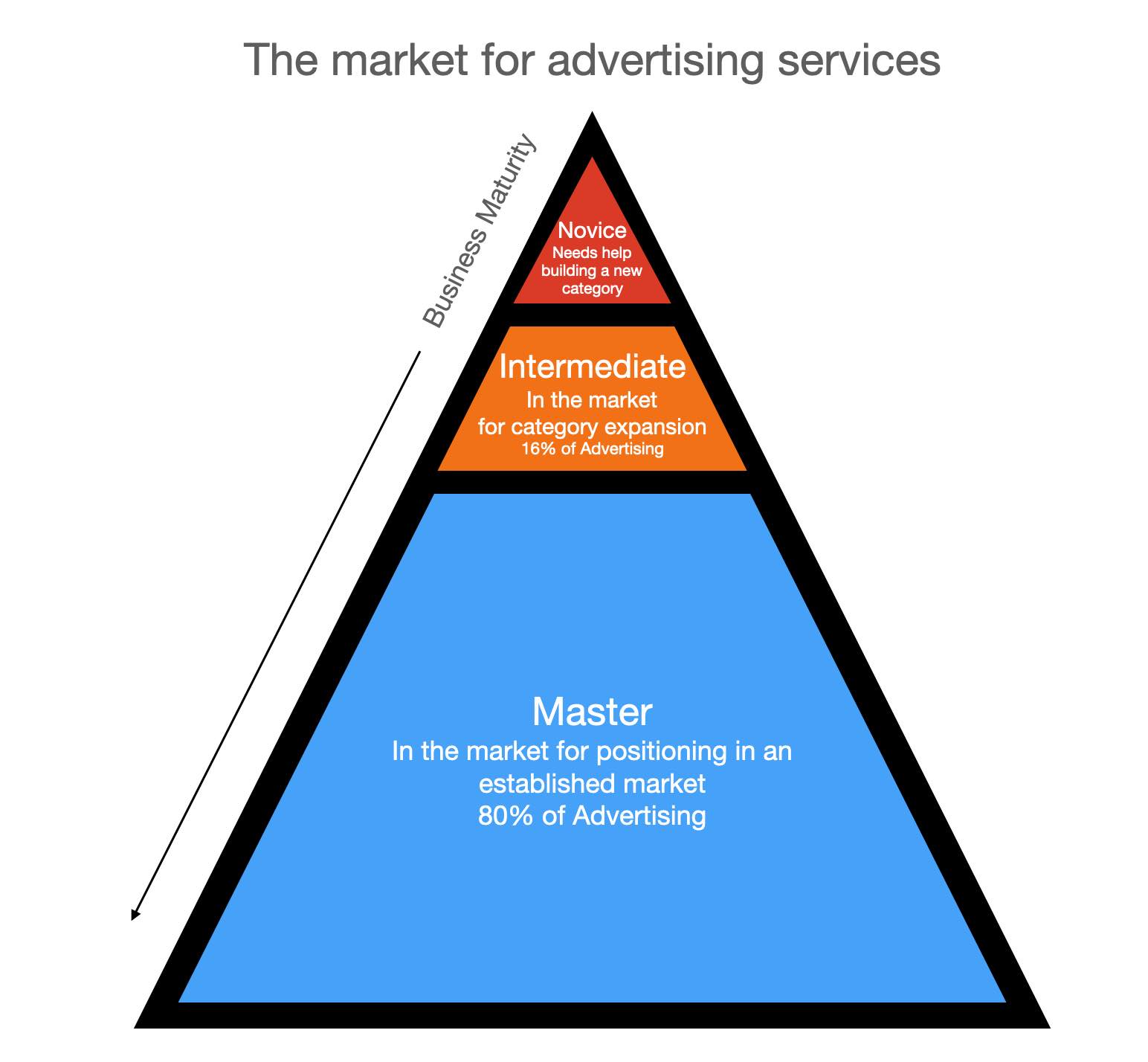
20 years on the integrated 'digital transformation' offering is the default offering of the consulting factories (eg Accenture)
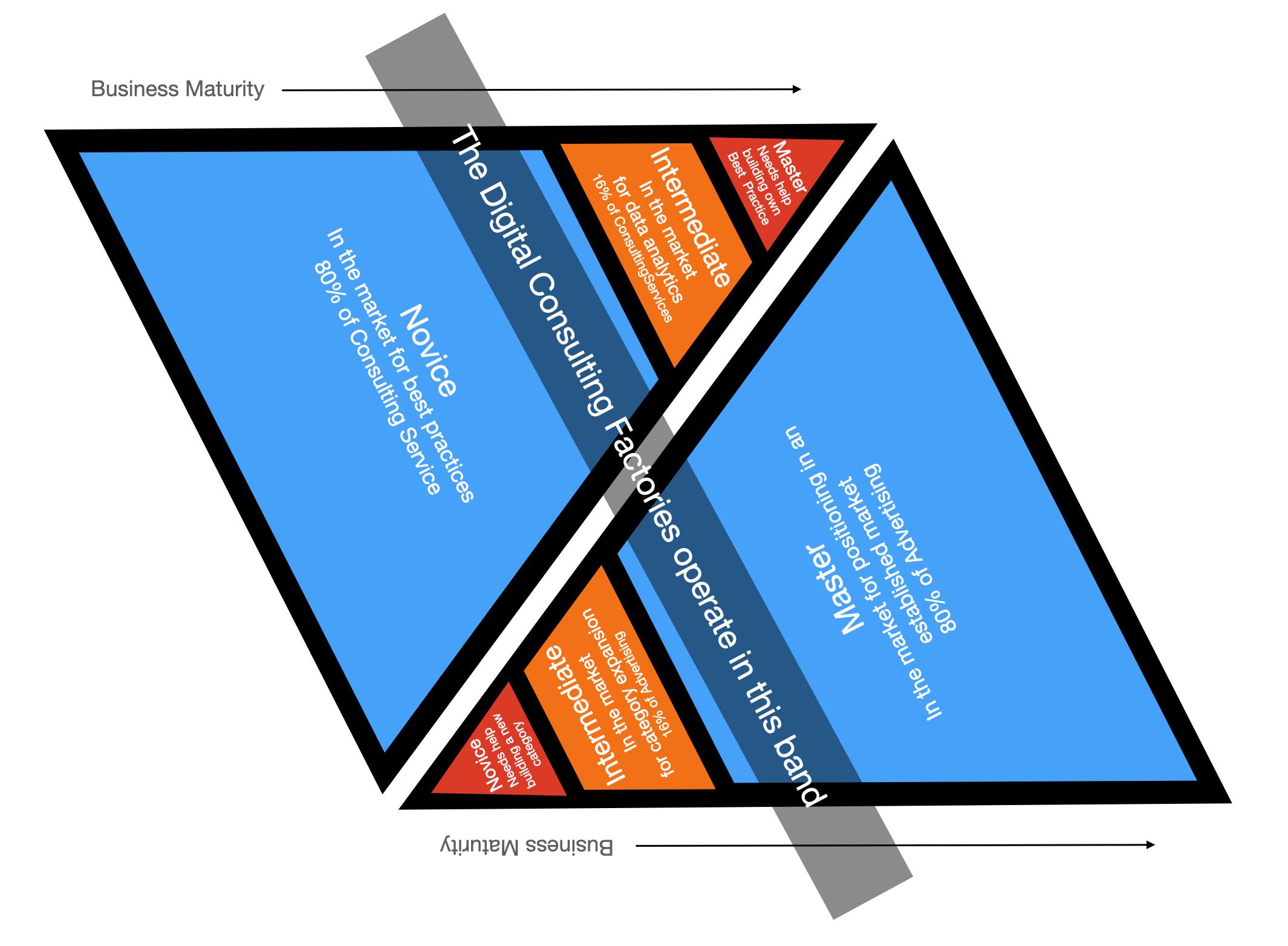
The risk, or more accurately the weakness, with the DP90 model was it addressed the 4% market share at the tip of advertising and management consulting pyramid
ie Putting in highly skilled teams into high risk/high return ventures within large corporates seeking to role out a new set of best practices designed to capture a new market category
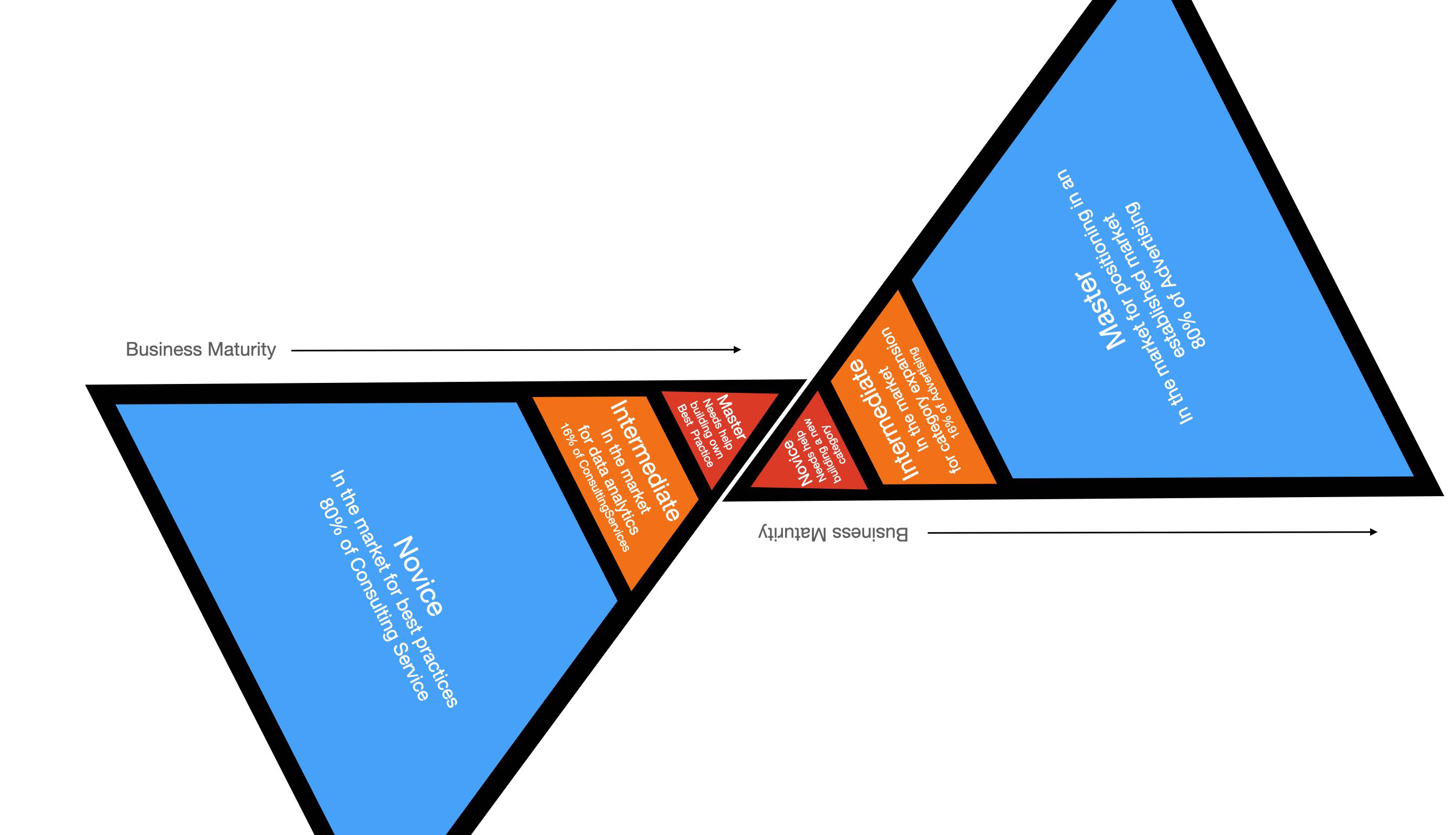
It was a paradox at so many levels
I admit in retrospect we made both massive gains and massive losses in the transition
We shifted from being in the business of improving your market positioning to improving your operational performance
and something fundamental was lost in translation
This vision became a series of massive projects, with restrictions on budgets and teams that were just too hard to deliver... never mind sell without the quick wins we previously made in repositioning our client's brand
We forgot the trick of opening the performance floodgates was repositioning the brand
Without the online business loan calculator the opportunity to pitch the redesign of business banking from the ground up never arrived
Needless to say it's time to get back to basics...
Now I would argue management consulting evolved from 'taking your watch to show you the time' to 'taking your watch to show somebody else the time' sometime back
Thanks to the wonders of digital and the zero cost of distribution they can now 'take your watch and show everybody the time... in real time'
Which is to say their economic function was never about 'invention and evolution' of new ways of doing business but the 'replication and contagion' of existing ways of doing business
The billable hours being of course a measure of the contagion
Within this context the assumption that the profession can become innovative is oxymoronic simply because this is neither its function or collective capability
i.e. its function is to share (& therefore accelerate the adoption of) best practices not create them
The advertising profession lumbers under a similar - dare I say parallel - misconception about its creative function in the business world
Advertising's function isn't to generate new ways of seeing or new ways of doing
Advertising's function is to distill the zeitgeist and then replicate and amplify it
In this advertising and management consulting are mirror activities
They analyse what works - what is hot - and amplify it so it quickly becomes the mainstream - the defacto, the default way of thinking and doing. Of seeing the world
These are not creative industries. They are hypermemetic industries
ie In the digital age they engage in the extreme and unrelenting vomiting of performative memes and xemes to advance their client's interests
The digital revolution has also brought automation to both sectors
Consulting has evolved into Software as a Service and Advertising into AdTech
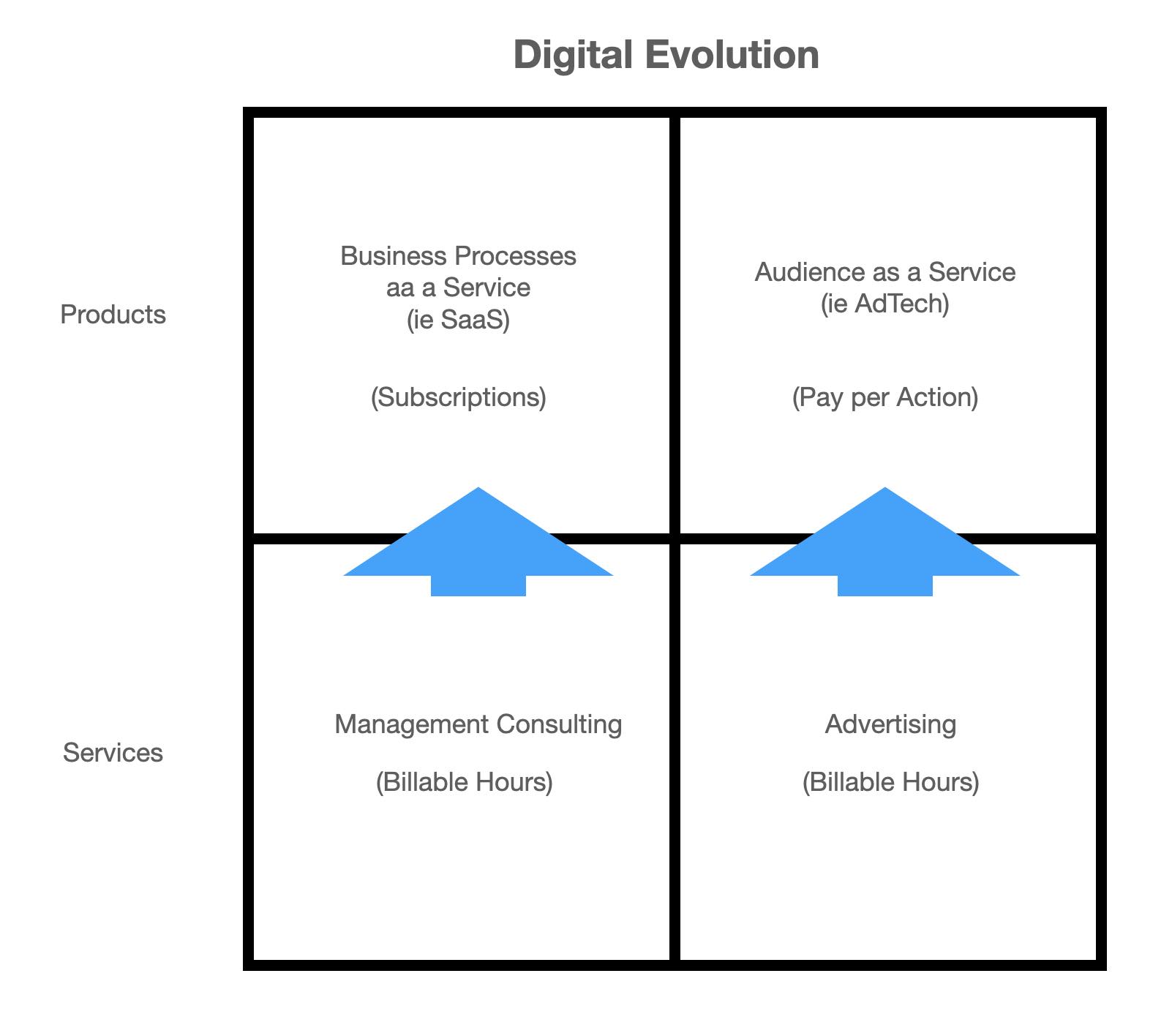
What was once a high cost, high touch service has become a low cost, just in time, tactical commodity
Today we have Position as a Service (Think: Google & Instagram) and Performance as a Service (Think: Salesforce)
Digital also brought us the rise of the digital marketplaces
and once again what was once a high cost, high touch service has become a low cost, just in time, tactical commodity
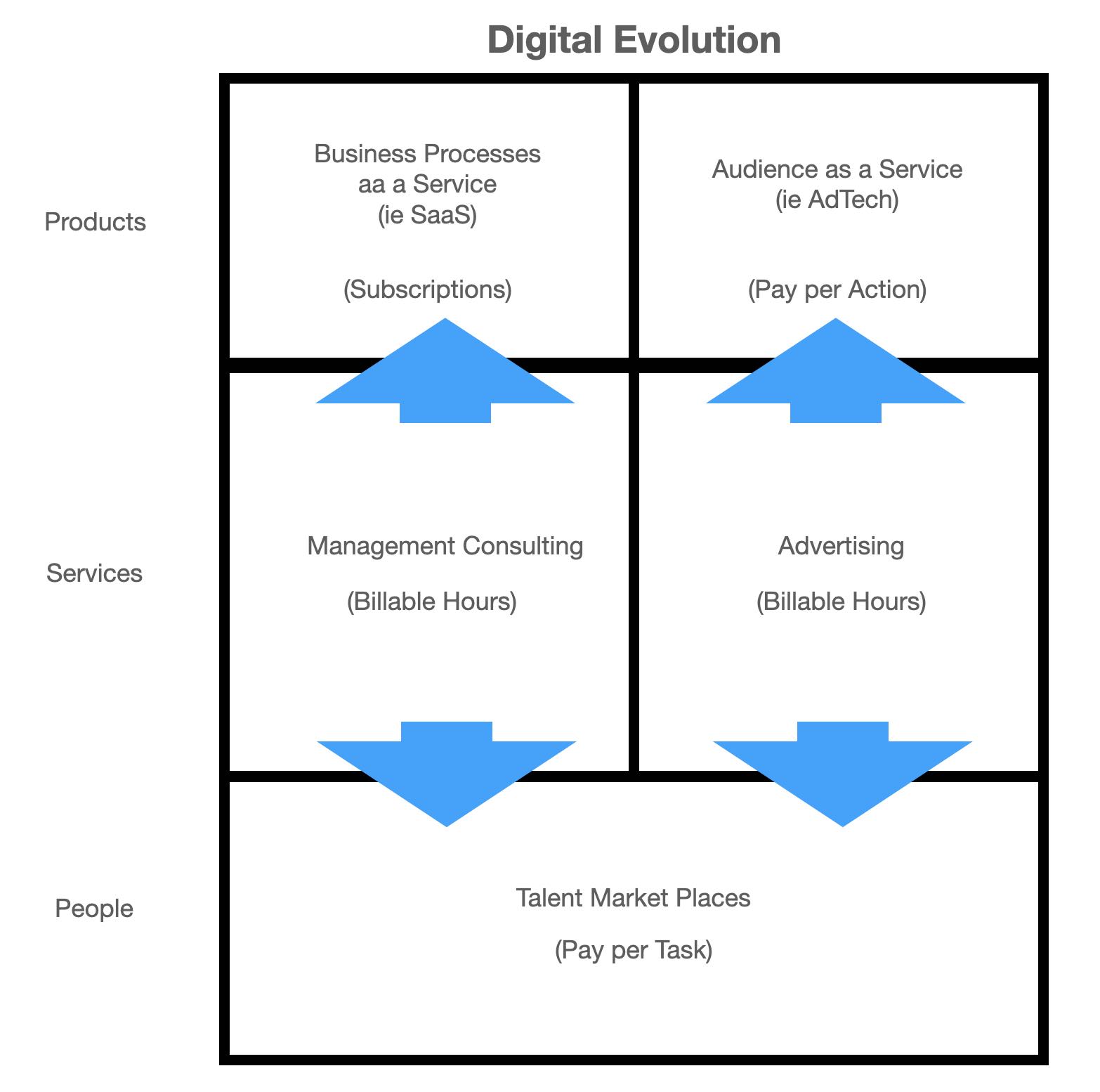
Inevitably project management becomes the core competency of the consultancies - no matter what their specialisation
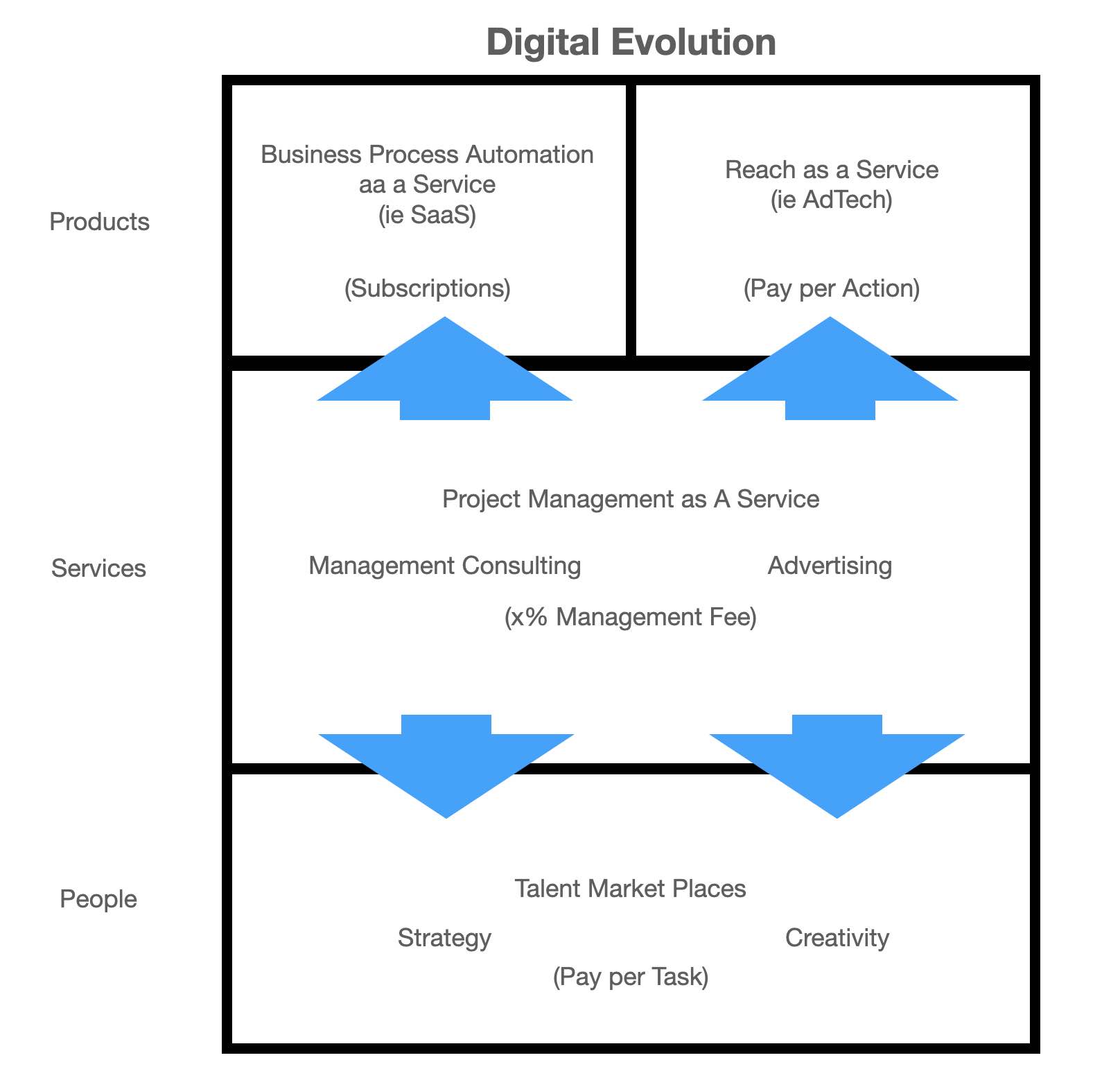
That's why 20 years on the consulting services industry leaders are best understood as branded project management entities
Dominating the 60% of the client pool that is shopping around for best practices in an established, crowded market (ie the Low Hanging Fruit)
The reason being they are trusted to deliver on the promise (of delivering the project on time, in full and on budget) - the fact they rarely do is another story...
Their value driver? Operational Excellence
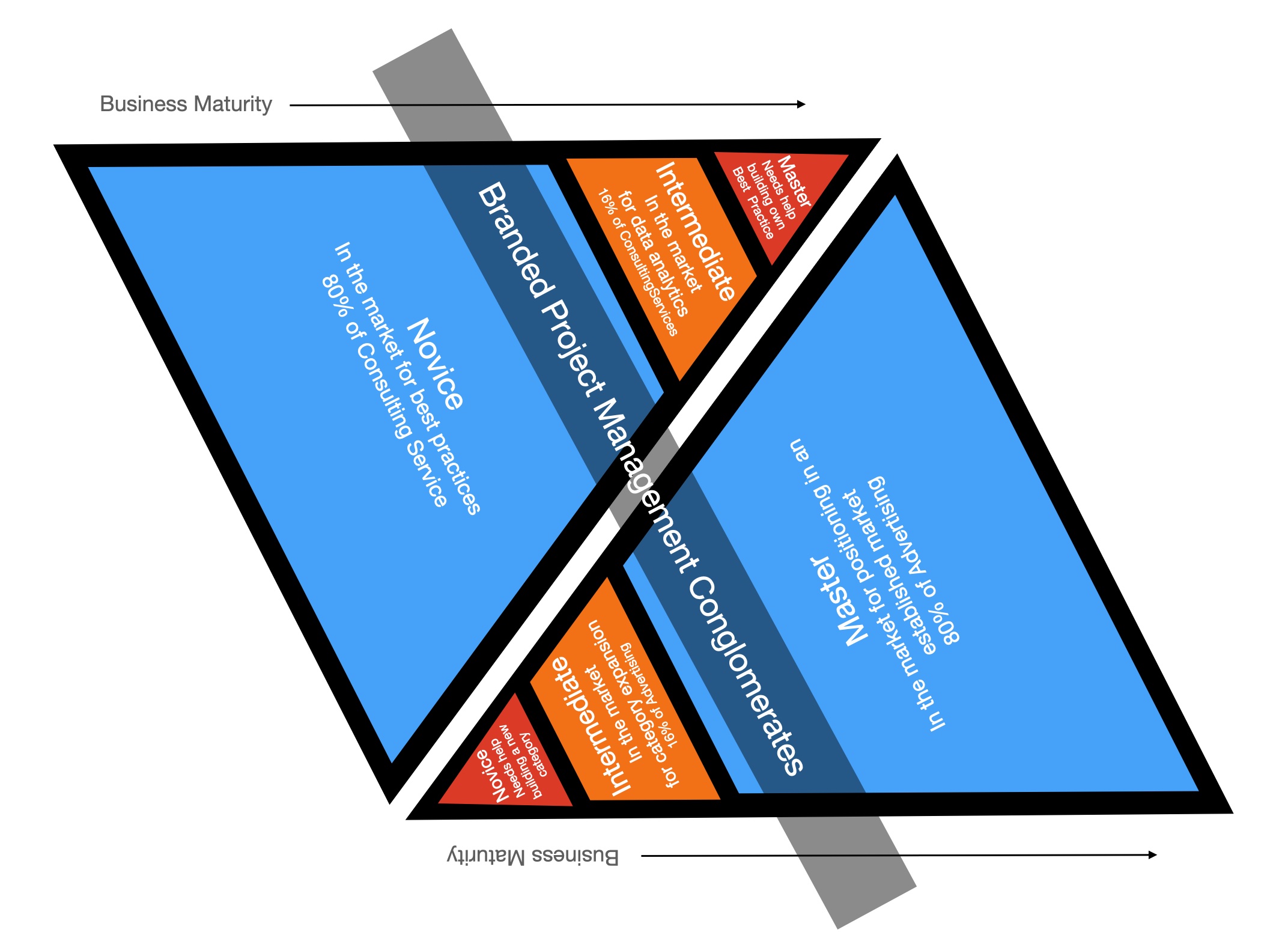
What we got right with Decision Point 90 was the focus on project management, the building of the talent marketplace and the transitioning of client's towards the automation of the new business processes
What we got wrong was we focused on then pointy end of the business rather than just harvesting the quick wins
While everybody was getting paid just running around the track in circles we tried to take on the pole vault while simultaneously reinventing it as a team sport
and this leads us to the inevitable question... looking forward 20 years what will change?
The easy answer is AI will have triggered a rethink in how creativity is procured (See Advertising & the emergence of the Xeme Factory)
The only question marks will be: Will it trigger a rethink about how Insights and Project Management are procured?
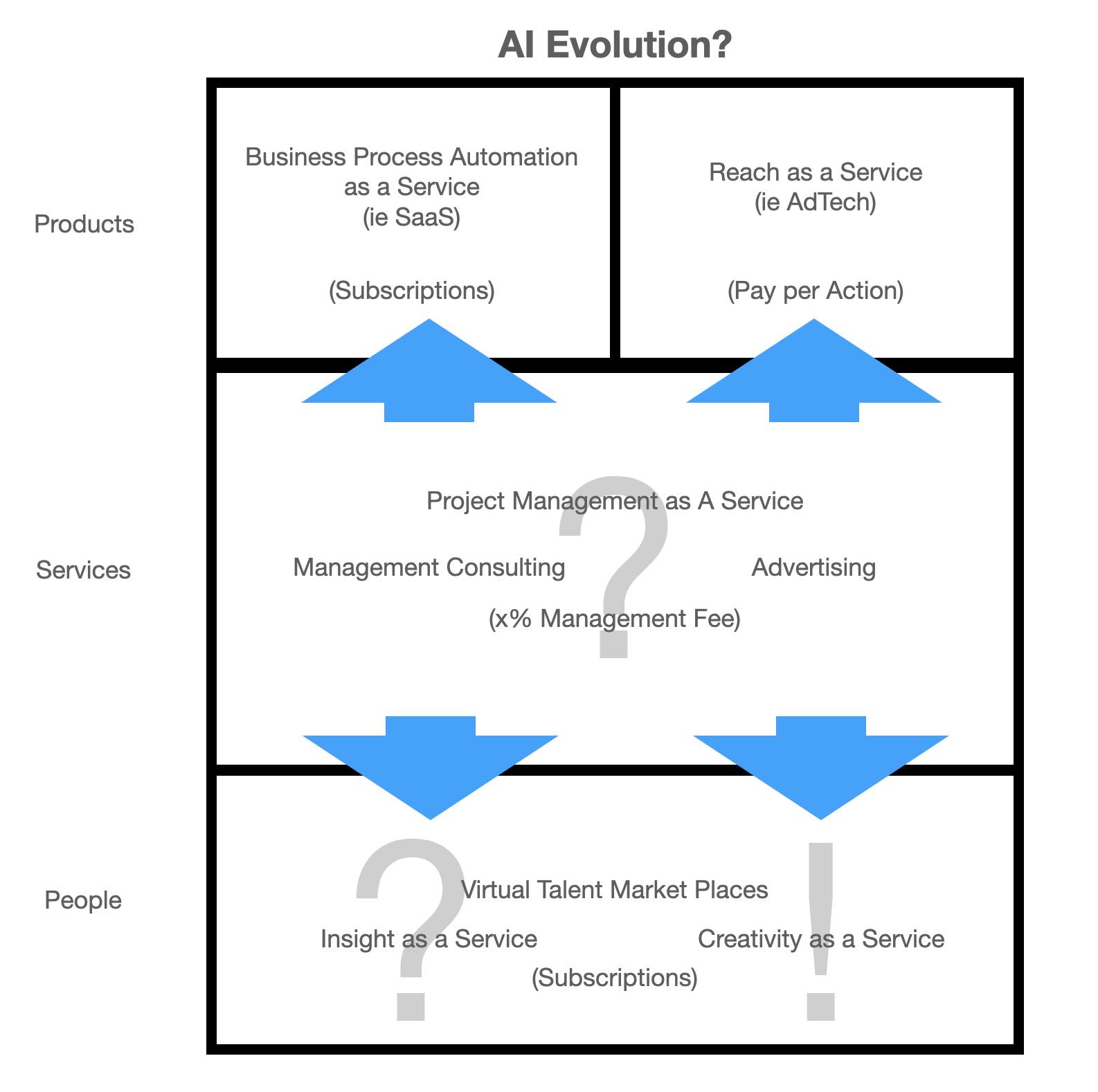
My assumption - assuming it can get Insights as a Service and Project Management as a Service to work - is Ai will come to dominate the low hanging fruit
Suggesting the market leaders invested in the factory model are most at risk from this technology
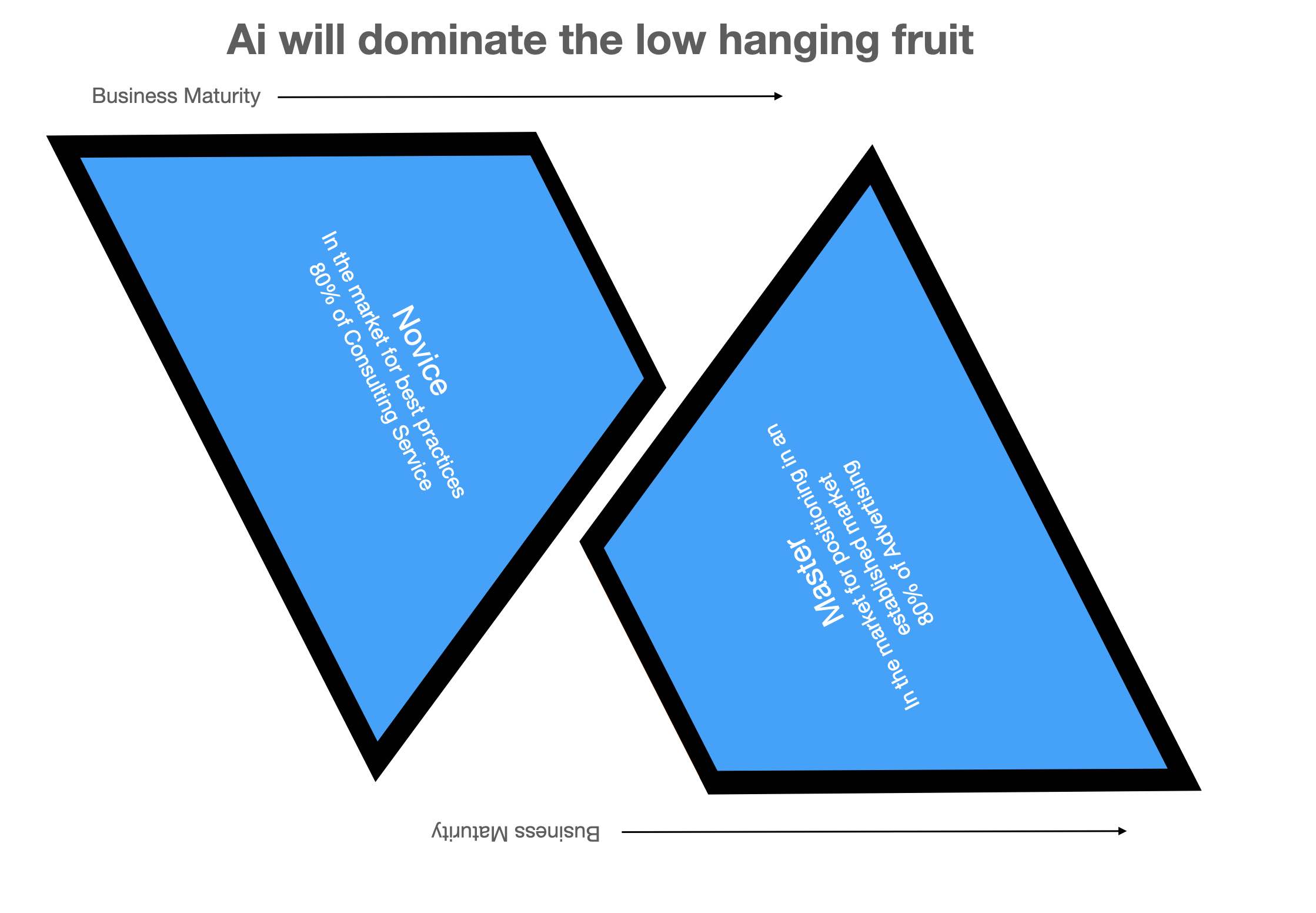
Meanwhile the hard stuff. The rocket science. It will be left to the rocket scientists
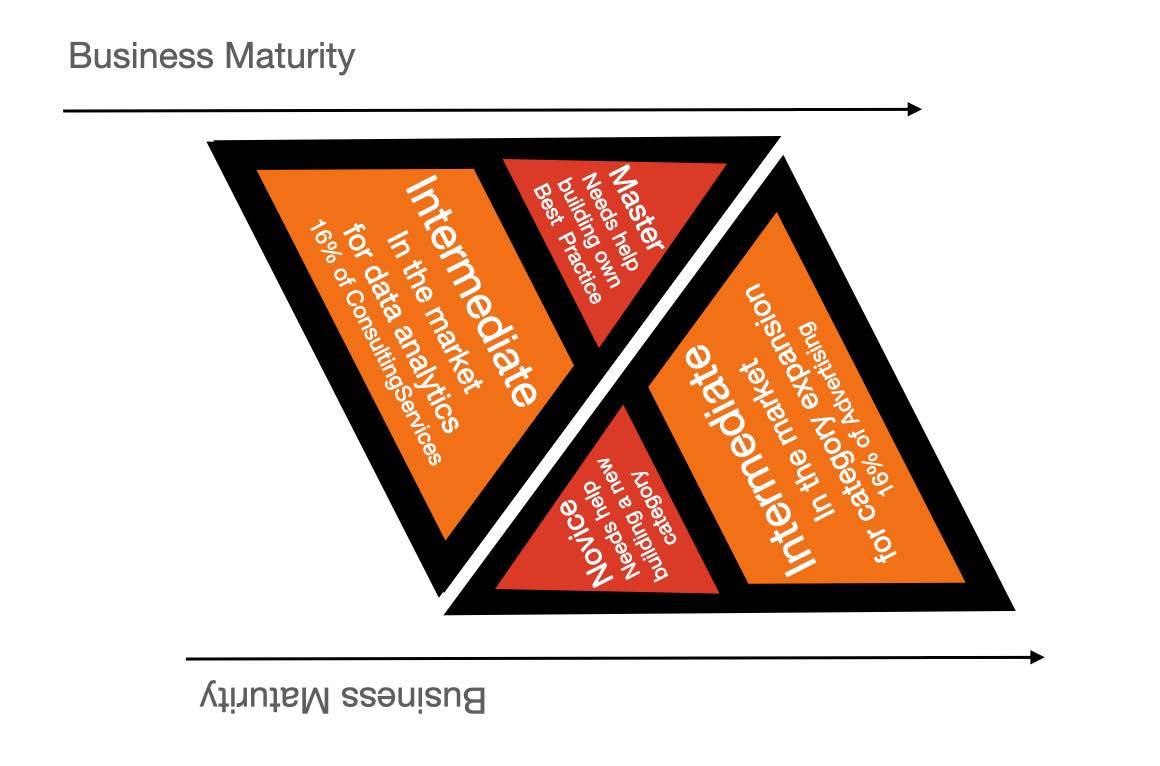
I suspect we'll see an explosion of micro or nano consultancies scattered across very narrow, highly profitable industry verticals
ie individuals or small teams empowered by Ai tasked with solving micro or nano performance and positioning problems
The key measure of AI's impact on management consulting and ultimately SaaS will be its ability to create new metrics
Just how effective will it be at coming up with new metrics and lists to improve business performance and operational capability?
Can AI come up with a better accounting and valuation metrics beyond EBITDA or the PEG Ratio. Can it design a KPI/Bonus structure that aligns management renumeration with shareholder interests?
This is the creative potential of AI
Its ability to redefine how business measures performance and therefore organisational behaviour
SaaS is basically "Spreadsheet as a Service"
The Spreadsheet ingests, digests and then excretes a new metric or list
The typical entrepeneur creates one new metric or list that becomes the basis of their business model
Successful entrepeneurs tend to generate just one metric or list (eg Page/Brin & Google/Pagerank or Zuckerberg & Facebook/Connections) the successful monetization of which allows then to acquire more lists or metrics (eg Youtube and Instagram)
Those that do iterate tend to do just that - iterate (eg Duffield - Peoplesoft and Workday)
AI on the other hand has the potential to create an infinite number of new performance metrics and lists
The game then becomes one of how quickly you can automate the gap between the invention of the new metric through to adoption and ultimately the automated expression of the metric via SaaS
Suggesting, within the context of high margin, premium management consulting, AI as a Service is less about Chatbots and more about Metrics as a Service - or more accurately Benchmarking as a Service
and in this context the new Decision Point 90 looks like this
Basically an emergent cross pollination model powered by AI
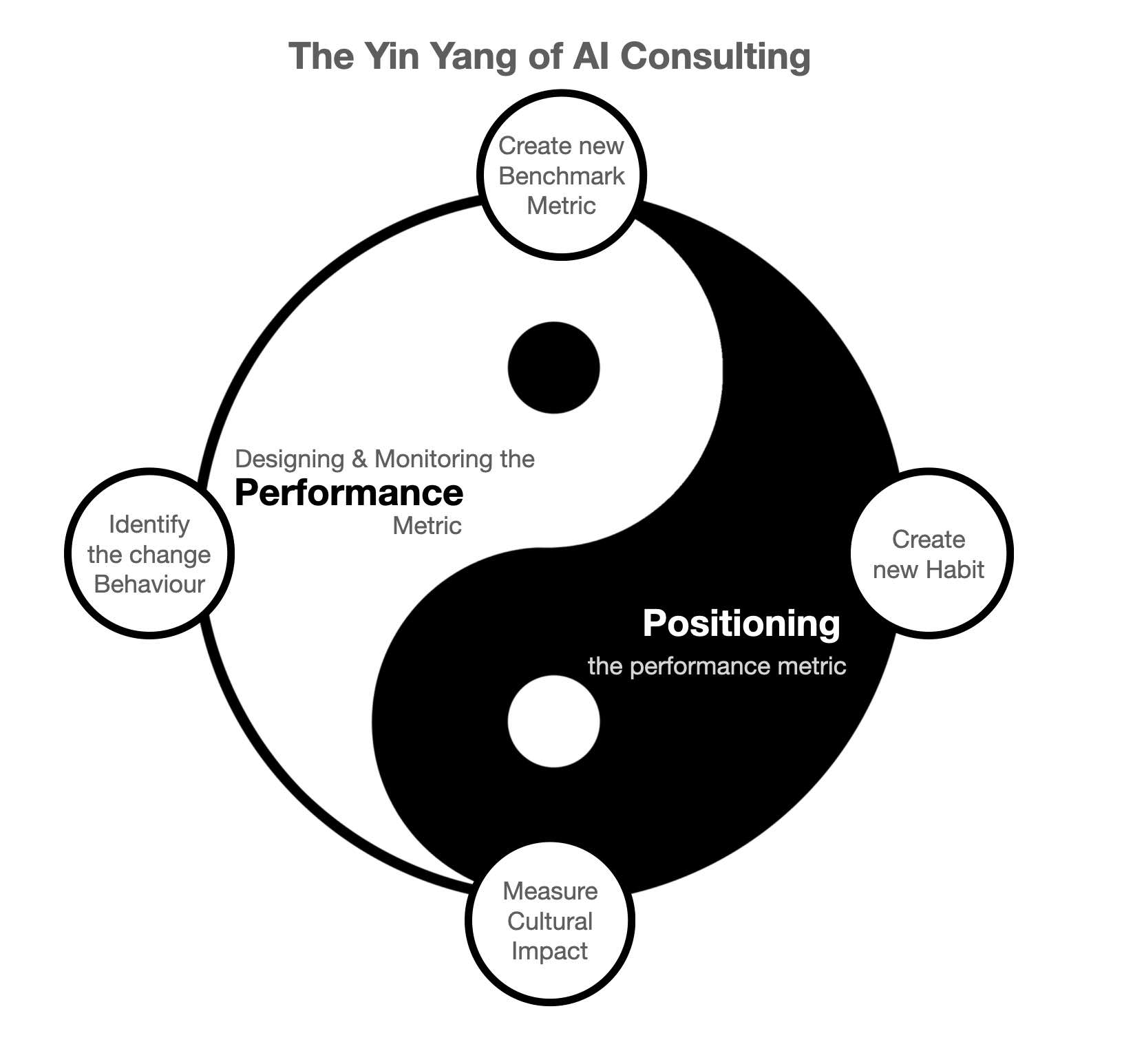
But the potential of this model has to evaluated within the context of the maturity of the current AI models being promoted by OpenAi and the other ML/LLM researchers
It may be magical but is it transformative?
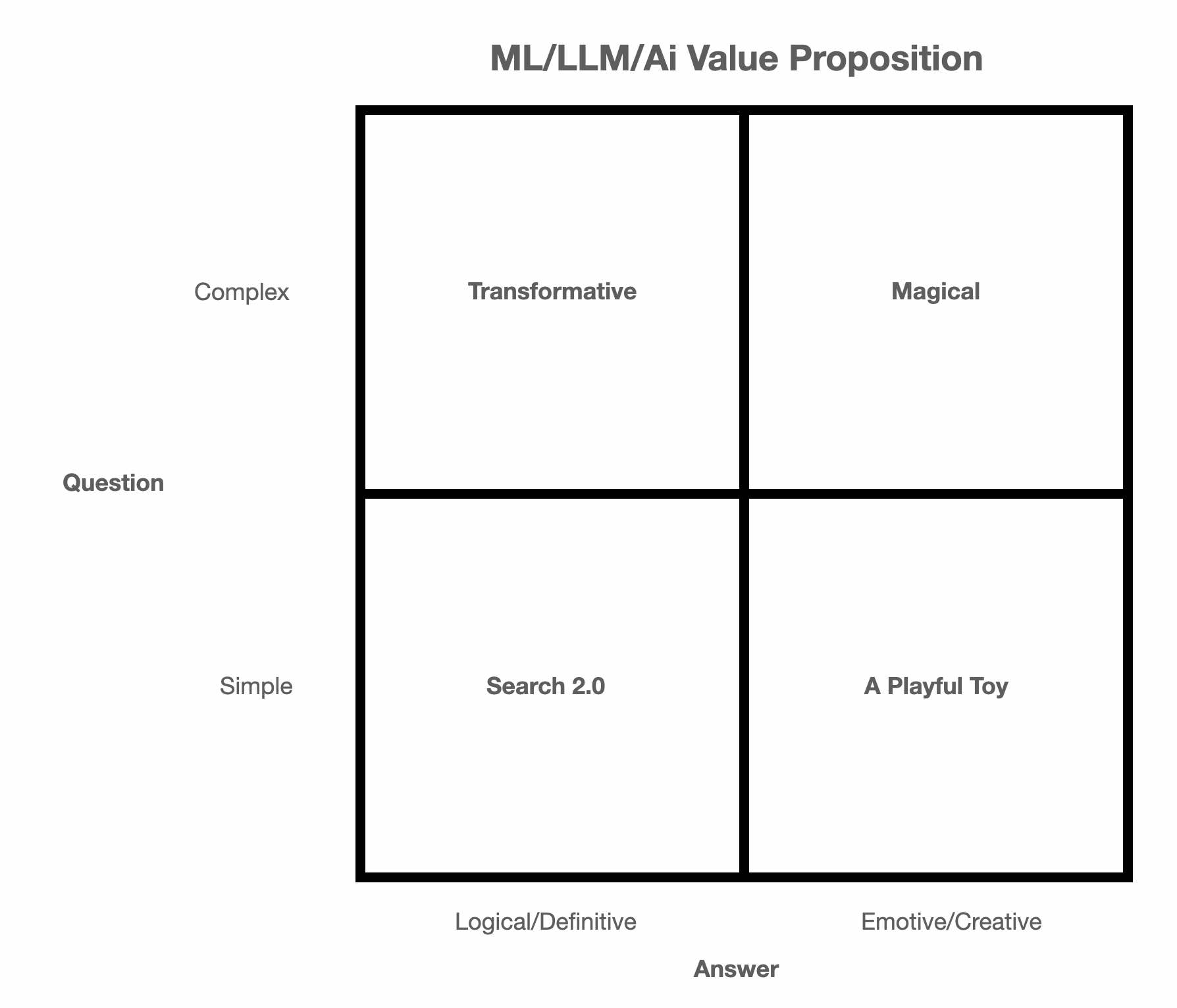
ATM all the evidence suggests the creative side is strong but the logical side of the model is weak
More Artificial Imagination than Artificical Intelligence
The question is will this change? and, if so, how long before it does?
and finally does it matter?
Does AI need to outperform in all 4 quadrants?
Arguably not...
But it does raise the question will people believe in the magic if they can't trust where it comes from?
and this leads us back to the robo management consultant experiment we conducted back in 2020
The one where I stumbled across a Tweet describing McKinsey's 'Rule of Three' for crafting persuasive arguments
The rule states: You need to provide the client with 3 reasons to adopt your recommendation. Not 2, Not 4. Just 3
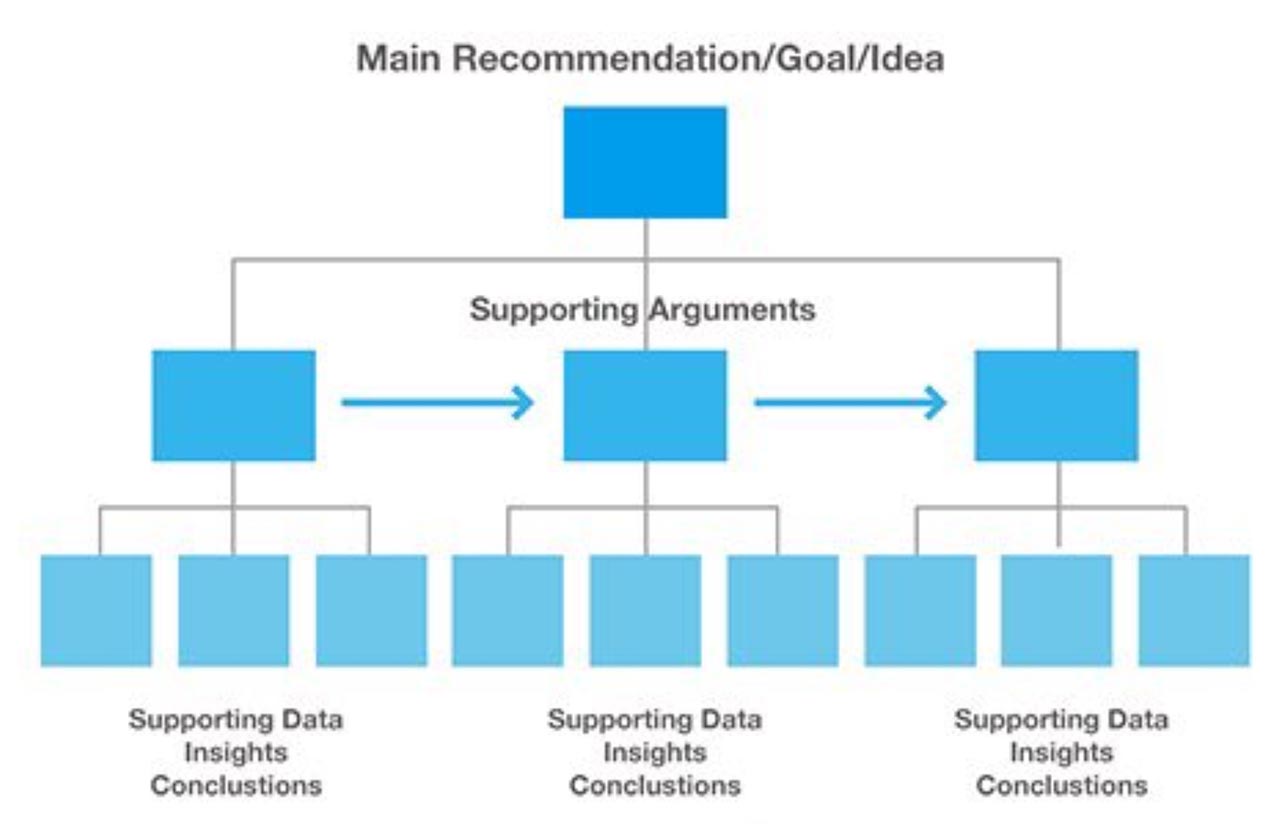
... and this piqued my interest
McKinsey's consulting model generates in excess of $1 Million per employee
Just how hard would it be to create a Robo Management Consultant that replicates McKinsey's advisory model?
Textural analysis of the HBR suggests the question can be resolved if we can reduce the activity of the management consultant into a value equation
For example...
The objective of the consulting assignment is to...
